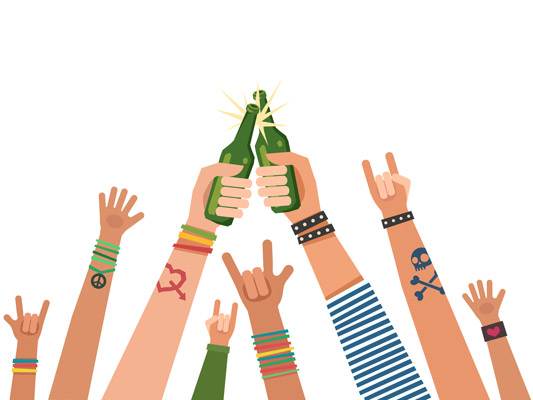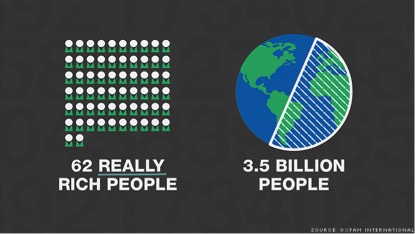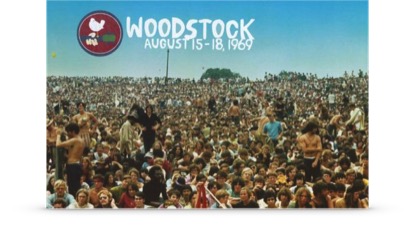Fun fact: type ‘Millennial’ into Google and you’ll learn two things:
Firstly, a Millennial is ‘a person reaching young adulthood around the year 2000’.
Secondly, that ‘the industry brims with theories in what makes Millennials tick’, making them possibly the first generation whose most defining characteristic is that no one seems to be able to define them at all.
Amusing, right? Sure…unless you’re given the job of helping explain what does make Millennials tick, as I was at Sustainable Brands Sydney last week.

Now, as much as I occasionally like to think I can still strut a pair of skinny jeans (to which my 6 year old once asked, ‘Dadda, why are you wearing mummy’s jeans?’), I am not a Millennial.
So an assignment like this was going to need help.
A little more time with the world’s favourite search engine told me that Millennials make up around 20% of both the population and workforce. Nothing surprising there.
More interestingly, by 2020 they will be 30% of discretionary spending and 35% of the workforce. And, by 2030, 75% of the workforce – with spending to match.
No wonder business and brands want to make Millennials their new BFF. But it wasn’t always this way.
Remember, this is the generation once called Gen Y.
And when I stuck that into Google, news site after news site popped up describing them as bad, worse or just plain awful.
One headline stood out in particular: ‘Gen Y: the Worst, Most Entitled, Spoilt Generation in the History of Humankind?’
Most of all, the word ‘entitled’ came up over and over again. Entitled? A whole generation?
#ouch
I needed to know more. What could make an entire generation become entitled? And are Millennials really so different to the rest of us?
I got my first clue from this statistic:
For Builders, the generation most of our grandparents belong to, about 1 in 10 has a university degree. For Boomers, it’s 1 in 5. For Gen X, 1 in 4.
For Millennials, 1 in 3, making them the most educated generation ever.
What’s more, a quick straw poll of our office told me that most don’t just have one degree. More and more employers are demanding their graduates hold a masters, just to get in the door.
So, in 18 or so years of education, what are they learning?
A quick call to Nick Bez at Mobium, turned up this.
In a recent study of parents of Millennials, 62% say their children regularly discuss environmental and sustainability issues at home. And 39% say they have changed their behaviour or purchased a different product because their Millennial children have encouraged them to do so.
And in current school children aged 12-16, 84% believe that ‘people and businesses need to stop ruining the environment right now’.
It seems this education is not wasted.
For my generation, environmental issues were present, but less urgent. Now we have a generation born into a world of climate change, deforestation and a population curve that would make the most seasoned skier balk. And they know it.
So what about economics?
I asked a Millennial friend, surely with all those degrees, you and your friends must be raking it in? She quoted me this, from Oxfam, reported in CNN:

The 62 richest people in the world own as much wealth as the bottom 3.5 billion.
And it’s getting worse – according to Berkeley professor, Emmanuel Saez, 95% of US income gains in 2009-2012 went to the wealthiest 1%.
Australia is, of course, not America. But according to ACOSS, we’re heading in that direction, with crazy expensive housing being one key culprit.
So how does all this make Millennials different?
For one, they’re wary of the system: this is a generation whose most defining image of the global financial system is the GFC.
For two, it changes their priorities. This, a real quote from a real person, sums it up for me – because it makes it personal.
‘I’m never going to be able to afford a house so I might as well do a job that I believe in’.
Yes, when success isn’t working for you, you start to look for a new kind of success.
Could it be that this generation is being called lazy and entitled for not wanting to work in a system that does not work for them?
It would be consistent with a lot of things we’re seeing in the world at the moment.
Like Brexit. And Trump. And Sanders. And Hanson. All kick backs against the status quo from people who feel the system is rigged against them.
So, what does all this mean for your company and your brand? Guess what…the relationship with brands is different for Millennials too.
For Boomers, a music festival looked like this.

For Millennials, it can look more like this – one big brand activation.

According to USA Today, in the 1970s, ‘the average city dweller was exposed to 500 to 2,000 ad messages a day’. In 2006 it was 3,000 to 5,000.’ Goodness knows where we’re now up to with the rise of the Facebook feed.
This generation has had more brand experiences than every one before it combined.
Brands are no longer special. They are everywhere.
And wherever they are, they make big promises to make your life better.
Now for those who don’t live in brand world, the best definition of a brand I have ever heard is ‘the promise of an experience delivered’.
The problem is, sometimes there’s too much promise and not enough delivery.
We all know about VW. The promise of a more environmental motor vehicle became the delivery of the biggest environmental scam in motor history.
And Rip Curl who, promising the freedom of the perfect wave, delivered clothes made in North Korean sweatshops.
These kind of indiscretions have always happened but now, in the era of the digital native, it’s harder for brands can’t hide.
So what are the good brands doing?
They’re listening to Millennials – the generation of the social entrepreneur – and adding social and environmental goodness into what they make and how they make it.
This quote in Marketing Magazine – again from Mobium’s Nick Bez – is an eye opener:
‘Last year in the US, the Boston Consulting Group (BCG) did a comprehensive study on the factors driving growth in consumer products and found the vast majority came out of products with socially-responsible overlays. Their message to FMCG companies was “take note.” They need to respond or they will get repositioned out of their market.’
New brands like Toms shoes and Thank You are winning by establishing themselves as social enterprises from the start.
Established brands, like Dove, are going further and further down the path of champion change in social issues.
And they’re all earning themselves a bigger and bigger share of rising Millennial discretionary spend we talked about a few minutes ago by doing it.
But I digress.
Let’s get back to Millennials, Gen Y and the entitlement.
Is this the most entitled generation we’ve ever seen? I say yes.
They’ve been asked to study harder than any other generation so they feel entitled a job that gives them a chance to learn.
They’ve been born into a world where the future of the human race is no longer guaranteed so they feel entitled to a planet to live on.
They’re feeling the impact of inequality so they feel entitled to demand a system that isn’t rigged against them.
They’ve been told brands can deliver anything, so they feel entitled to trust them on their word.
They’re putting their money where their mouth is.
And if that’s what entitlement is, I’m all for it.
This article originally appeared in The Fifth Estate.
Here at Republic of Everyone we bring brands, sustainability and creativity together to make doing good, good for business.
Call us +61 2 8097 8746, email ben@republicofeveryone.com or drop us a line below if you would like to work with us.



